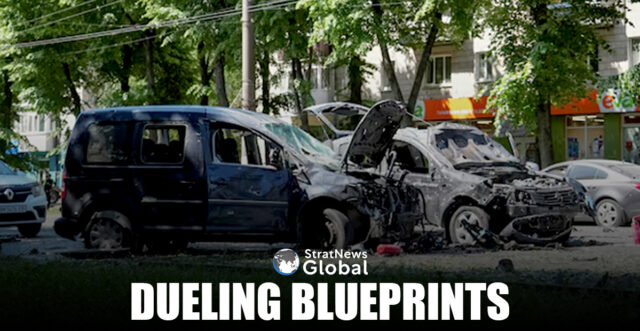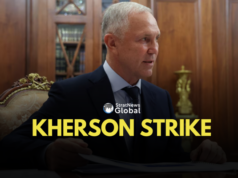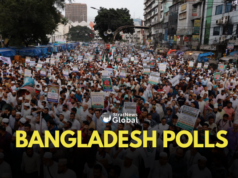Russia and Ukraine have exchanged peace deal proposals that highlight the vast gulf between the two sides’ positions.
Russia listed its demands in a memorandum handed to Ukrainian negotiators in Istanbul on Monday and published by Russian news agencies.
Sequencing
Moscow proposes a limited 2-3 day truce for the exchange of bodies, and says truce terms must then be negotiated. These would include a list of Russian demands.
Kyiv says there can be no talks without a full and unconditional ceasefire, initially for at least 30 days, with the possibility of rolling extensions.
It then wants “confidence-building measures”, notably the return of all children illegitimately taken from Ukraine and the release of Ukrainian civilian detainees and all prisoners of war on both sides.
Meanwhile, full peace negotiations would be prepared.
Kyiv says sanctions on Russia could be progressively lifted, with a “snapback” mechanism for restoring them if necessary.
Final terms would be settled in a meeting of the two countries’ leaders.
They would include monitoring of the ceasefire and penalties for breaking it; security guarantees; territorial issues; economic issues, including compensation and reconstruction; and penalties for breaking the agreements.
Ceasefire
Kyiv says a ceasefire must be unconditional and monitored by the U.S., supported by third countries.
Moscow offered two options for a truce.
In the first, it would stop firing once Ukraine begins a complete withdrawal from the parts that it still controls of the four regions that Russia claims: Luhansk, Donetsk, Zaporizhzhia and Kherson. This would have to be completed within 30 days.
In the second, Ukraine would cease all troop movements, along with enlistment and all foreign military assistance. It would also undertake to halt “sabotage and subversive activities” against Russia.
Political prisoners and other detainees would be amnestied and released by both sides.
An agreement would be signed on implementing the “parameters” of a settlement, and a date would be set for the signing of a final treaty.
Ukraine would lift martial law to remove an obstacle to parliamentary and presidential elections, which it would commit to holding within 100 days.
The treaty would be signed, approved by the U.N. Security Council, ratified by both sides and enter into force.
Final Settlement
Territory
Moscow wants international legal recognition of Crimea, seized in 2014, as part of Russia, along with the entirety of Luhansk, Donetsk, Zaporizhzhia and Kherson regions.
Kyiv notes that the territorial gains made by Russia since 2014 are not recognised by the international community. It says that “the contact line is the starting point for negotiations”.
Alliances
Moscow says Ukraine must become neutral, outside any military alliance, with no foreign forces on its soil, and pledge not to acquire nuclear weapons
Ukraine demands the right to join NATO if the U.S.-led transatlantic defence alliance accepts it.
Military
Moscow wants limits on Ukraine’s armed forces and weaponry, and a ban on foreign forces deploying there or providing support.
Kyiv rejects all such restrictions.
Meanwhile, it insists there must be robust international guarantees of the settlement’s implementation and of Ukraine’s own security.
Financial
Moscow wants bilateral sanctions scrapped, mutual war damage claims waived, and diplomatic and economic ties, including gas transit flows, restored.
Kyiv says Russian sovereign assets, including those held abroad, must be used for the reconstruction of Ukraine or remain frozen until reparations are paid.
National Identity
Moscow says Ukraine has discriminated against its Russian-speakers, which Kyiv denies, and must guarantee them “full rights”, recognising Russian as an official language.
Russia has repeatedly accused Ukraine, without evidence, of “glorifying Nazism” and spreading “Nazi propaganda”, and demands that these be explicitly outlawed along with “nationalist organisations”.
(With inputs from Reuters)





